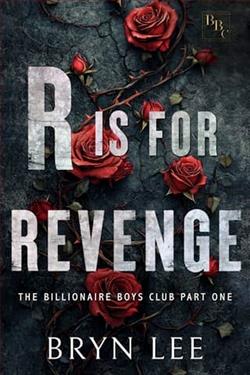Page 27 of Cowgirls Love French Kisses
I glance around at the faces of my family, all expectant, their genuine interest a comforting pressure. Mostly because I know they are desperate to hear that I’m doing okay. My break up was hard on them in a different way. They surrounded me with food, games, put me up for a few weeks when I couldn’t bear to be in a strange city alone.
They need to know I’ve landed on my feet
“It is,” I say, and someone lets out an audible sigh. “In some ways it’s easy to blend back in, though it’s different from the Paris where I did my studies.”
“It's the same Paris, you just see it with different eyes now,” my second sister, Anne-Laure, says as she passes me a dish of roasted vegetables.
I accept the dish and the truth in her words. “Perhaps you're right. Then again, I'm not sure if it's the city that's changed or me.”
A common sound of agreement comes from around the table, quickly cut off by my brother-in-law, Bruno, instructing the children to stop playing with their food.
“You see all the fun you’re missing out on?” Bruno says sarcastically. “You’d better enjoy that big city life on our behalf!”
Chuckles roll from around the table. If only he knew how much it’sthislife that I want more than the freedom and excitement of the big city.
“Who knows, maybe one day I’ll be the one calling at the children to stop their antics.” I reply and the table hushes.
Anne-Laure breaks the silence. “Maybe. But then those kids had better not get into the conserves the way young Mathieu did!”
“I’d put my money on any kid of Mathieu’s stealing the conserves at every opportunity, from that very shed!” Éliane, my youngest sister, points to the scene of the domestic crime, a little wooden shed in the corner of the garden, just hidden from view of the main house.
“Oh, those conserves.” My mother shakes her head. “Granny was so upset about that.” She pats my knee. “Good thing you were so endearing. Lying, saying it wasn’t you even as you had raspberry stains all over your face.”
“They were good, what can I say?”
My reputation as a thief of all things fruit-in-jars apparently hasn’t died, not even whenGrandmamanandGrandpèreleft this world.
The conversation shifts then to memories of our grandparents in this very house, the one that now cradles our family's present life.
“It's funny, isn't it?” I say, spreading my arms to encompass the yard. “We've all circled back to where we started.”
Marie-Christine’s husband, Philippe, nods in agreement, a sizzle behind him as he turns the sausages on the grill. “There's something about this place. It draws you back.”
“It's the kids,” Marie-Christine chimes in, her own children chasing each other around the garden. “We wanted them to have the same freedom we did, the same space to grow.”
I nod, watching my many nieces and nephews play in the yard.
I breathe in the scents of home—the grilling meat, the fresh salad, the sweet promise of dessert—these roots run deep and they’ve anchored me. It’s a sense of belonging that the restless heart of Paris could never quite replace.
I lean back in my chair, full with the last bite of dessert, when I feel a small tug on my sleeve. I look over to find birthday-girl Léa peering at me.
“Uncle Mathieu,” she pouts at me, “why don’t you have kids I can play with yet?”
“You have tons of cousins.”
“Yeah, but I want more.”
She makes me chuckle. “Well, kiddo,” I say, ruffling her curly blond hair, “to have kids, I need to find the right person to be their mom first.”
She ponders this with a seriousness that only a ten-year-old can muster. “Why don’t you just find a wife, then?” she asks, as if the solution is as simple as picking a flower from the garden.
I let out a hearty laugh while a brisk breeze rustles the leaves above us. “I’m working on it, Léa. It’s not for lack of trying.”
She looks at me, her brow furrowed in thought, then suddenly, she brightens. “You know, in the stories, the prince always finds the princess because he’s brave and he goes on an adventure. Maybe you need an adventure to get the princess.”
Her idea, sincere and unguarded, is actually not bad.
“Is that so?”















